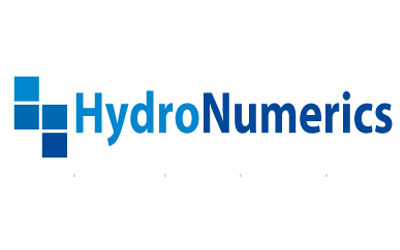Mindtribes is actively interviewing and profiling Australian companies, doing business in Asia. These stories will be continuously brought to you, highlighting both positives and challenges – it is an opportunity to learn or validate knowledge. The following interview is with dynamic, Chris O’Neill, Director and Water Resource Engineer at HydroNumerics.
Tell me briefly about your business and how it operates with India.
We are environmental scientists and engineers who work with hydrodynamics and water modelling focused on water quality and environmental changes. We are proactive rather than reactive, helping our clients with an online decision support system, where we load data to yield critical information for our clients to use to make strategic decisions. We are in various countries, like Korea, Japan, Melbourne, South Australia and India etc.
You recently returned from attending the Vibrant Gujarat Summit, what were your wins there?
We signed a Memorandum of Understanding (MOU) on the 12th of January to work with a client on a project to understand and assess the discharge of waste -water on the marine environment. We also signed an MOU to hire and train local staff on our modelling.
What was the initial attraction to working with India?
My first encounter was in 2012 when I went on a Trade Mission and then in 2013-2014 we started doing business. Our initial attraction was and still is the parallels in technical capacity, cross over culturally – there are a lot of similarities with Australia and India as compared to India and the US or UK. Another consideration was the ease of doing business from a logistics perspective – you can fly overnight and start the next morning. Also there is no issue with English. The other consideration was to do something for the community, when we support businesses there, there is a big impact. I go to India every month.
Tell me more about what works well in your dealings with Indian partners.
They are eager to build a long term relationship and a personal one, they are often asking me how my kids are and remember if I said they were sick last time. They have a lot of technical expertise – they train from the same water management textbooks as we do, for example.
Tell me about the challenges working with Indian partners.
Expectations – they might say yes in a meeting or via email and then they might go quiet with no responses to follow up emails. As a business, we are very responsive and forward moving, we then wonder what we are doing partnering, it is not about price or delivery with India, but the process of getting the outcomes.
We also find that they are very cautious, sometimes overly so. With our modeling, while it is a science, we can’t predict what happens in 10 years or we can’t be exact. Indian partners are worried about this and express it. As engineers, we work on a ‘Precautionary Principle’ – just because we can’t prove it, does not mean you can’t take action. Doing nothing is risky also.
They are often transactional, fixing a problem for now and sending off a report to say it is done, rather than thinking more strategically.
While they have a high number of engineering graduates every year (almost 6000 a year), their competency is not practice based but theoretical, this makes it harder to do business, as they are keen to given theoretical information and sometimes offer intelligent but irrelevant input into the problem at hand.
Timeframes are an issue – they often are not open about timeframes, hesitant to commit or to say if they can’t meet a deadline.
Sometimes, Indian partners think we are a charity and we should ‘help’ them out, we are not an NGO – so this becomes difficult, but we are clear we are a profit-based company.
What have you changed about yourself or the way you work as an Australian leader? Has this worked or not?
What I have come away with as a learning from doing business in India is that the client is part of an ‘ecosystem’. As an engineer, you can become quite transactional but working in India you realize that organizations there exist in a wider circle of stakeholders for e.g. we have had to engage the Gujarat Pollution Control Board. We have brought this way of working back to our Australian clients and it works well, thinking about getting buy in from stakeholders in the ‘ecosystem’.
I have become more open about being asked personal questions and actually remember to reciprocate with Indian clients, asking them about their children etc., which is something I would never do with Australian clients, it is just not a big deal here.
Both these have worked.
What would you like Indian partners to do better? How critical are these areas for your continued partnership and your business?
Their decision-making needs to improve. They need to broaden their scope of thinking, for example, instead of just fixing a downstream issue for the short term, we would rather they fix an upstream issue and fix it for the long term.
To implement a monitoring system to their decisions – so there is feedback to assess how the decision panned out.
Stick to timeframes or communicate openly about them. At HydroNumerics we often tell our clients about “Dollars, Deadlines and Deliverables” – when we partner, we want our clients to know this, it is an imperative to doing business with us.
Is there anything you would like to say about doing business in India from an Australian perspective?
Have a go but remember how important the face to face is, being visible there is important, so budget for trips there.
Hope you enjoyed this story and great practical insights. Leave a comment, share it with your network and follow us on Twitter: @DivPillay1 and @Hydronumerics
